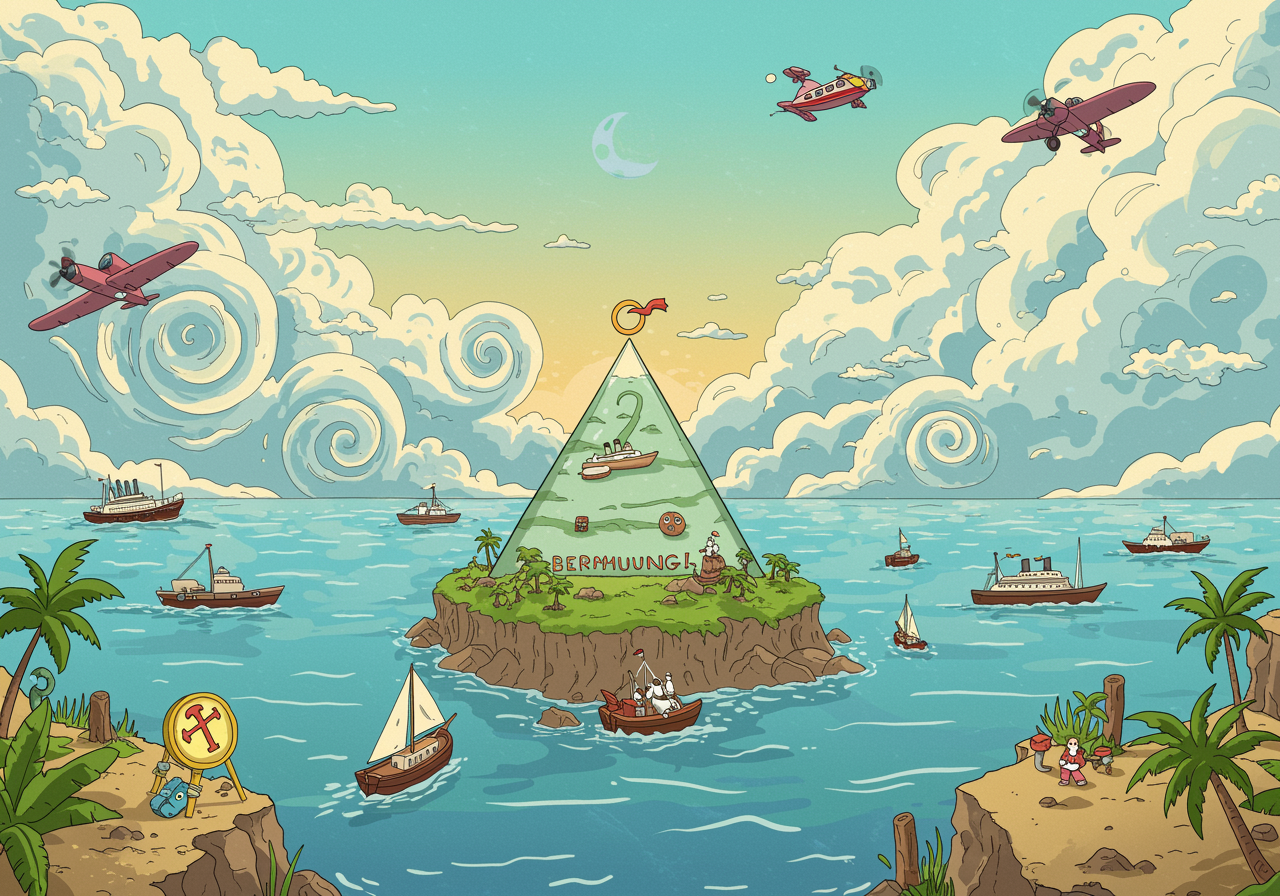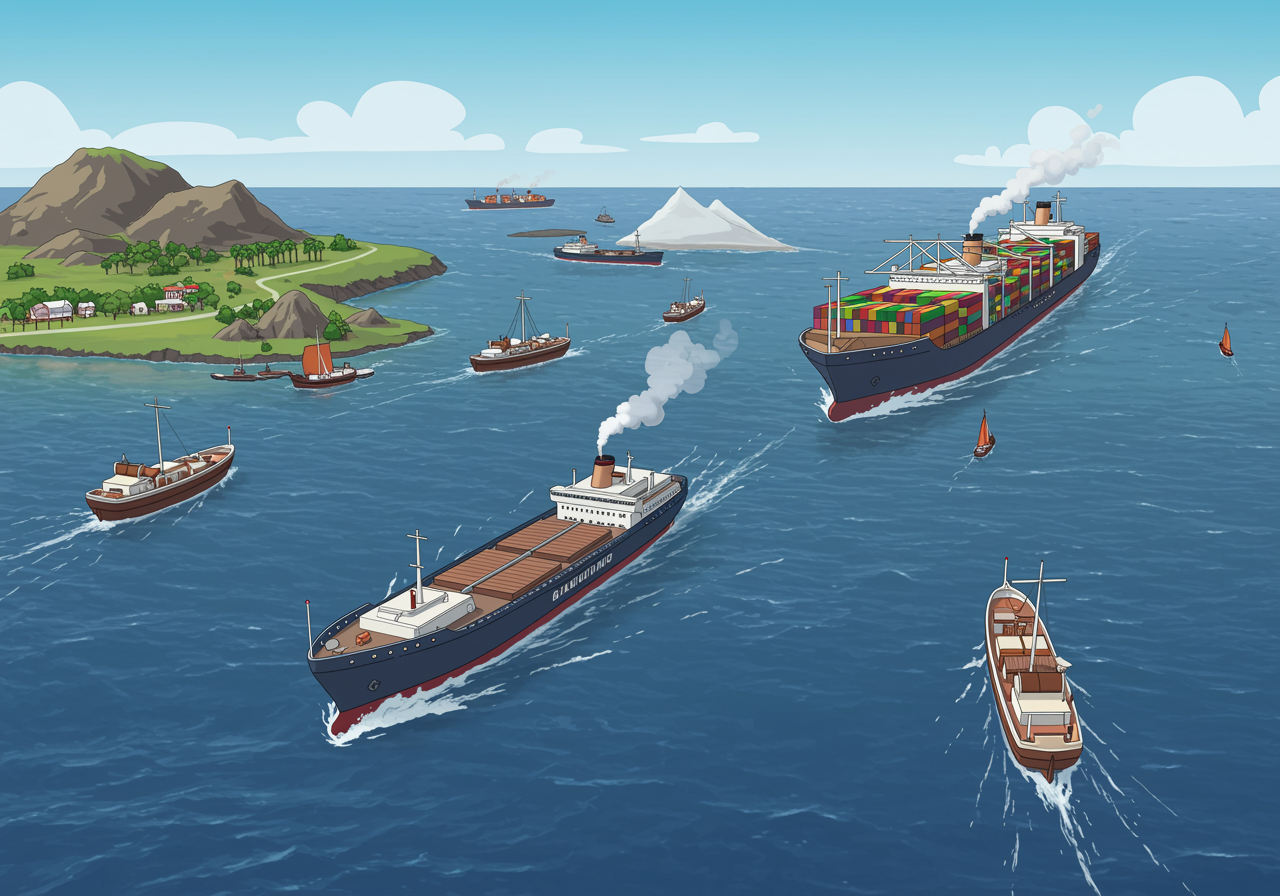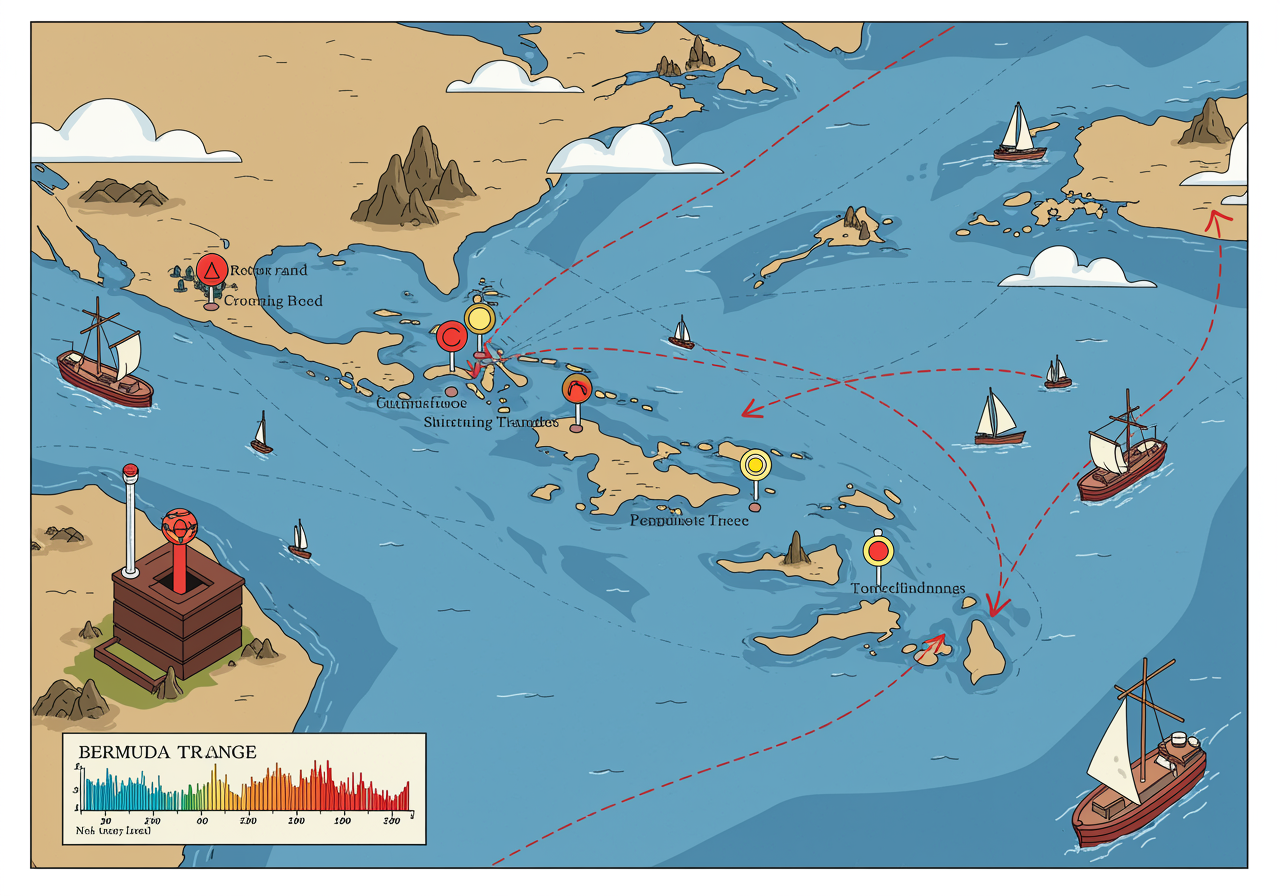The Bermuda Triangle Mystery Detective Guide: Separating Fact from Fiction

Dive into one of the ocean’s most famous puzzles and learn to think like a science detective
Join your family on an exciting journey to uncover what’s really behind the Bermuda Triangle’s mysterious reputation and discover how scientists solve puzzles.
Overview
The Bermuda Triangle has captured imaginations for decades with stories of vanishing ships and planes. But here's the cool part – it's a perfect chance to teach your kids how to think like real scientists and detectives! Instead of just believing wild stories, you can explore together what actually happens when something mysterious catches the world's attention. This topic helps kids learn to ask great questions, look for evidence, and understand that the most amazing discoveries often come from investigating what seems impossible.

Understand in 30 Seconds
Get up to speed quickly
- It's a Real Place, Weird Stories: The Bermuda Triangle is a real area of ocean between Florida, Puerto Rico, and Bermuda where some ships and planes have disappeared, but most stories about it are way more dramatic than reality.
- Science Has Answers: Scientists have found logical explanations for most disappearances – bad weather, human mistakes, equipment problems, and the fact that it's a super busy shipping area.
- Numbers Don't Lie: When researchers actually counted missing vessels, they found the Bermuda Triangle doesn't have more disappearances than other busy ocean areas around the world.
- Mystery Sells Stories: The triangle became famous because mysterious stories grab attention and sell books and movies, even when the real explanations are much simpler.
Real Life Scenario
Situations you can relate to
Imagine your phone goes missing at school and rumors start flying – maybe aliens took it, or it fell into a parallel dimension! But then you remember you left it in your gym locker. That's exactly what happened with the Bermuda Triangle. When ships or planes disappeared in that area, people loved creating wild explanations instead of looking for boring but real reasons. Have you ever noticed how a simple story can grow into something crazy when it gets passed around? What if we investigated your missing phone mystery the same way scientists investigate the Bermuda Triangle – by gathering evidence, checking facts, and testing theories?

Role Play
Spark a conversation with “what if” scenarios
What if you were a coast guard investigator getting a report about a missing boat?
- Role play: Take turns being the investigator and witness. Ask questions like 'What was the weather like?' and 'When did you last see the boat?' Practice gathering facts before jumping to conclusions.
What if you had to explain to a friend why their wild theory about the Bermuda Triangle might not be true?
- Role play: Practice presenting evidence kindly. One person shares a conspiracy theory while the other responds with scientific facts and alternative explanations without being mean about it.
What if you were creating a documentary about the Bermuda Triangle?
- Role play: Decide together which 'experts' you'd interview, what evidence you'd show, and how you'd present both the mystery AND the science to keep viewers interested in the truth.
FAQs
Frequently asked questions people want to know
Do more ships really disappear in the Bermuda Triangle than other places?
Nope! When scientists actually counted disappearances per ship that travels through, the Bermuda Triangle is totally normal. It just seems like more because it's a super busy shipping area.
What about all those planes that vanished without a trace?
Most had logical explanations – storms, mechanical problems, or pilot error. The ocean is huge and deep, so finding wreckage can be nearly impossible, which makes disappearances seem more mysterious.
Why do people still think it's supernatural if science explains it?
Because mysterious stories are way more exciting than 'bad weather caused a crash.' Our brains love puzzles and adventure, so we're naturally drawn to unexplained mysteries even when explanations exist.
Examples in the Wild
See how this works day to day
- Flight 19, five Navy planes that disappeared in 1945, was likely due to compass malfunctions and getting lost in bad weather, not supernatural forces (U.S. Navy Historical Archives)
- The cargo ship SS Cotopaxi, which disappeared in 1925, was recently found off the coast of St. Augustine, Florida – nowhere near the Bermuda Triangle (Science Channel, 2020)
- Modern GPS tracking shows that thousands of ships and planes pass safely through the Bermuda Triangle every day without incident (National Ocean Service, NOAA)
- The Bermuda Triangle doesn't appear on any official government list of dangerous areas for navigation (U.S. Coast Guard)
In Summary
What you should know before you start
- The Bermuda Triangle is a real area where some disappearances happened, but scientific investigation shows normal explanations
- Critical thinking and evidence-gathering help us separate exciting stories from actual facts
- Mysterious-sounding events often have logical explanations when we dig deeper with science
- Learning to question claims and look for proof is a superpower that helps in all areas of life
Pro-tip for Parents
You got this!
If your child seems disappointed that the mystery isn't 'real,' celebrate their love of wonder by emphasizing that the actual science is often more amazing than fiction. Help them see that being a good detective who finds the truth is way cooler than believing wild stories without evidence. The goal isn't to crush their imagination, but to show them that real investigation skills will help them discover actual amazing things in the world.

Keep an Eye Out For
Find these examples in everyday life
- News stories about 'unexplained' disappearances anywhere – practice investigating what really happened together
- Social media posts claiming mysterious events – great opportunities to fact-check and discuss reliable sources
- Movies or TV shows about supernatural mysteries – perfect for comparing entertainment with real science
Explore Beyond
Look up these related research topics
- How weather patterns and ocean currents affect shipping and aviation safety
- Famous scientific mysteries that were later solved (like the cause of scurvy or how birds navigate)
- The psychology of why humans love conspiracy theories and mysterious explanations